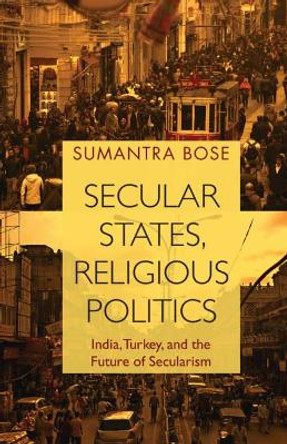Renewed authoritarianism, national disintegration, sectarian violence, and the increasing radicalization of Jihadi-Salafism since the Arab uprisings have significantly blurred visions for constructive religion-state-society relations in the MENA region. The dissolution of the 'Arab Spring' seems to have revived the questionable notion of Islamic exceptionalism. In sharp contrast, this book seeks to invalidate the supposed incompatibility of Islam and secular democracy. It outlines a complex Islamic political theology that undermines the religious basis of the unification of religion and state, offering religious justification for their separation. Naser Ghobadzadeh coins the seemingly oxymoronic notion 'religious secularity' to encapsulate the Islamic quest to emancipate religion from state. In simultaneous opposition to both the politicisation of Islam and authoritarian secularism, religious secularity employs Islamic sources such as the Quran and Hadiths to articulate a robust religious rationale for state secularism. Whereas mainstream literature frequently presents being secular as 'antithetical to being religious', religious secularity blurs the boundaries between the 'religious' and the 'secular'. This book suggests that the rift between the religious and the secular is no more pronounced than the relationship between the two understood in dualistic terms, as evinced by Islamic history. Thus, religious secularity supports a theoretical shift away from the religious-secular dichotomy.
About the AuthorNaser Ghobadzadeh is a Research Fellow at the Institute for Social Justice, the Australian Catholic University (ACU). He holds a Ph.D. (University of Sydney, 2012) and an M.A. in Political Science (Shahid Beheshti University, Iran, 2001). Naser has authored two books in the Persian language, including A Study of People's Divergence from the Ruling System (2002) and The Caspian Sea: Legal Regime, Neighboring Countries and US Policies (2005). His articles have been published in top-ranked international journals such as Third World Quarterly, Democratization, Philosophy and Social Criticism, Contemporary Politics, Commonwealth & Comparative Politics and Discourse.
ReviewsGhobadzadeh's book is a valuable addition to the current literature on Islam and secularism. His book will be useful to students and scholars interested in Iranian political history and thought and modern Muslim reformist thought more generally. Perhaps his greatest contribution is in writing a highly readable book that shows modern Muslims not as simply passive subjects of tyrannical regimes but as critical thinkers who are pushing the envelope of Islamic political thought into a more promising future. * Rushain Abbasi, Journal of Law andReligion *
Book InformationISBN 9780190664893
Author Naser GhobadzadehFormat Hardback
Page Count 288
Imprint Oxford University Press IncPublisher Oxford University Press Inc
Weight(grams) 410g
Dimensions(mm) 233mm * 158mm * 17mm









